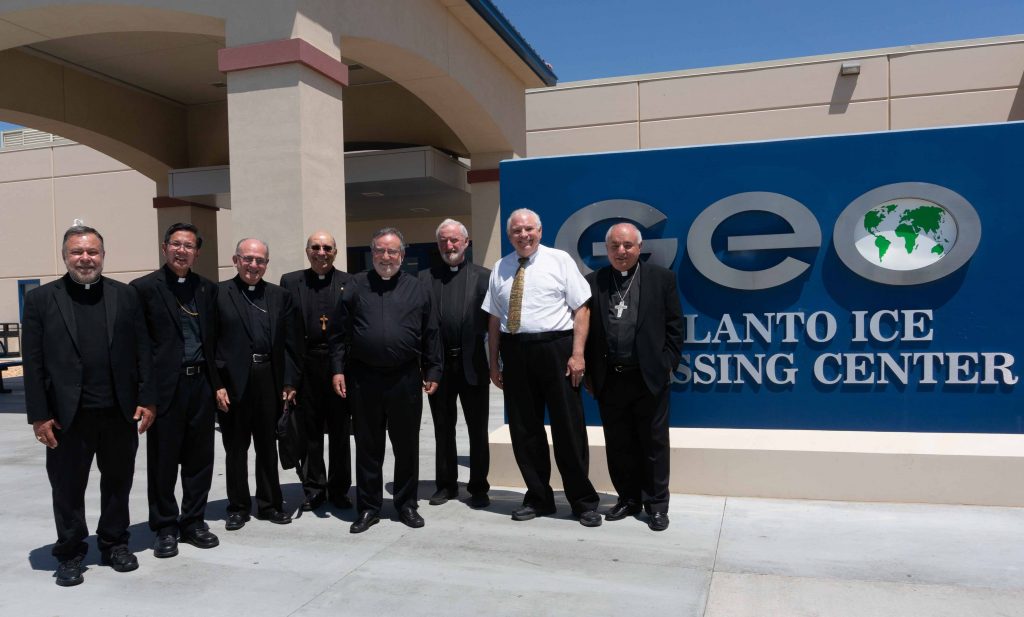A group of Catholic leaders in California were allowed inside the Adelanto Immigration and Customs Enforcement Processing Center July 25.
The delegation, organized by the California Catholic Conference, consisted of six bishops, 16 priests and several nuns and volunteers.
During their time there, the bishops and priests heard confessions and celebrated four separate Masses attended by a total of 350 people.
One of the bishops was Los Angeles Auxiliary Bishop David O’Connell, who spoke to Angelus News about the visit.
Pablo Kay: Why did you make this visit?
Bishop David O’Connell: I went with some of the other bishops and some religious, and some people who are leaders on immigration in the different dioceses — Orange County, San Bernardino and Los Angeles. We went on a pastoral visit.
As Bishop Gerald Barnes said to the people we met, we were there because they were there.
We wanted them to know that we cared about them, that we were worried about them, we did not forget them, and that we wanted to show them our pastoral care for them by going there to say Mass with them, to pray with them.
Kay: What kind of people did you meet?
Bishop O’Connell: We met a few different categories of people in that facility. There were men and women who have been in this country for many years and had somehow run afoul of the law. These were people who had been arrested by ICE and kept there until they can pursue their case in court, where it will be decided whether they’re going to stay here or not.
The other 50 percent of the population are people who came to the border looking for refugee status. There were people from India, from some countries in Latin America, from Africa, there was even a Vietnamese person. They all came from different places to the Mexican-American border to ask for asylum.
Kay: What struck you the most about what you saw there?
Bishop O’Connell: First of all, it breaks your heart to see so many people who have suffered so much in their own countries and are trying to find a new life here in the U.S. The people I talked to have been victims of cartels or gang violence and feared for their lives or feared for their children’s lives, because of the breakdowns of the societies that they’re coming from.
Some of them talked about the fact that they were very unhappy being there, because they asked for asylum and they got put in these facilities instead.
But others said that as bad as it was [being in the Adelanto facility], it was better there because at least they were safe. At least they weren’t under a threat of death or of being destroyed in their own countries.
You could see the hope in their eyes, and it touches your heart to see how these people, as Archbishop Gomez always says, are not just statistics. These are young people who are trying to find a new life for themselves and you wish you could help all of them.
Kay: After this visit, what is the hope for the future?
Bishop O’Connell: The hope for the future is that some of them will get legal status here. We have to keep on working for immigration reform, so that more of these people are able to get asylum, and so that the people who’ve been here struggling for years can find some way to get legalized here by changing legislation.
I must also say that I was impressed by the other bishops and members of our group, all of whom are really trying to work hard to bring about some reform of the legislation to help more people have a better future here.

